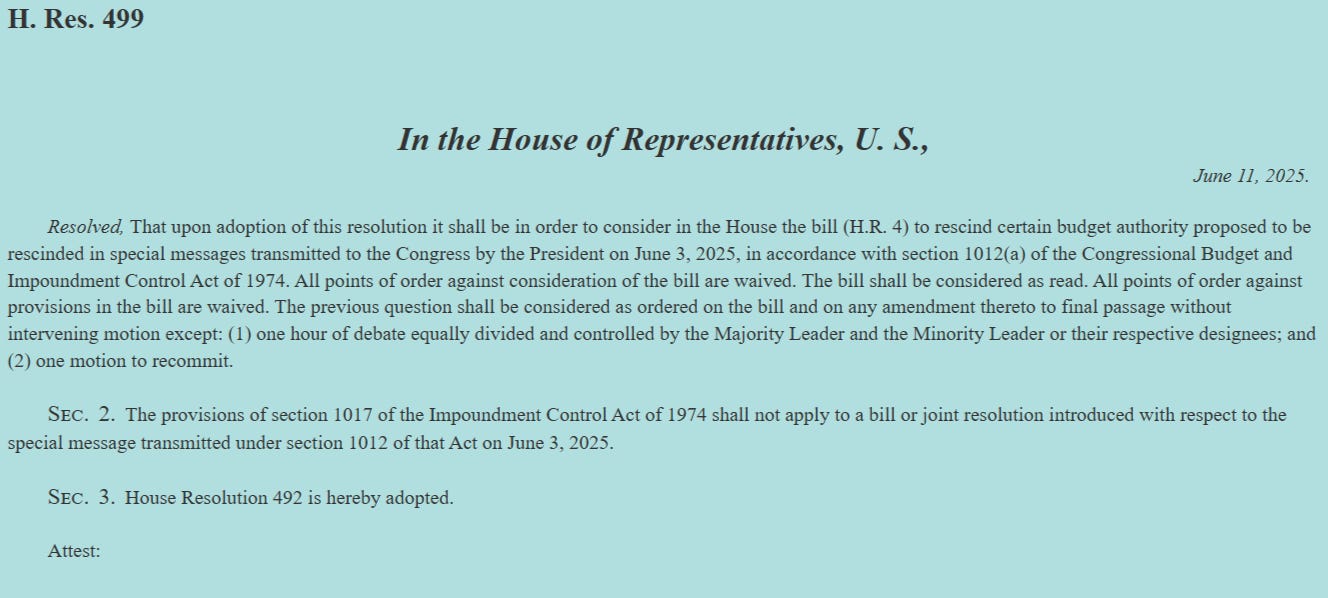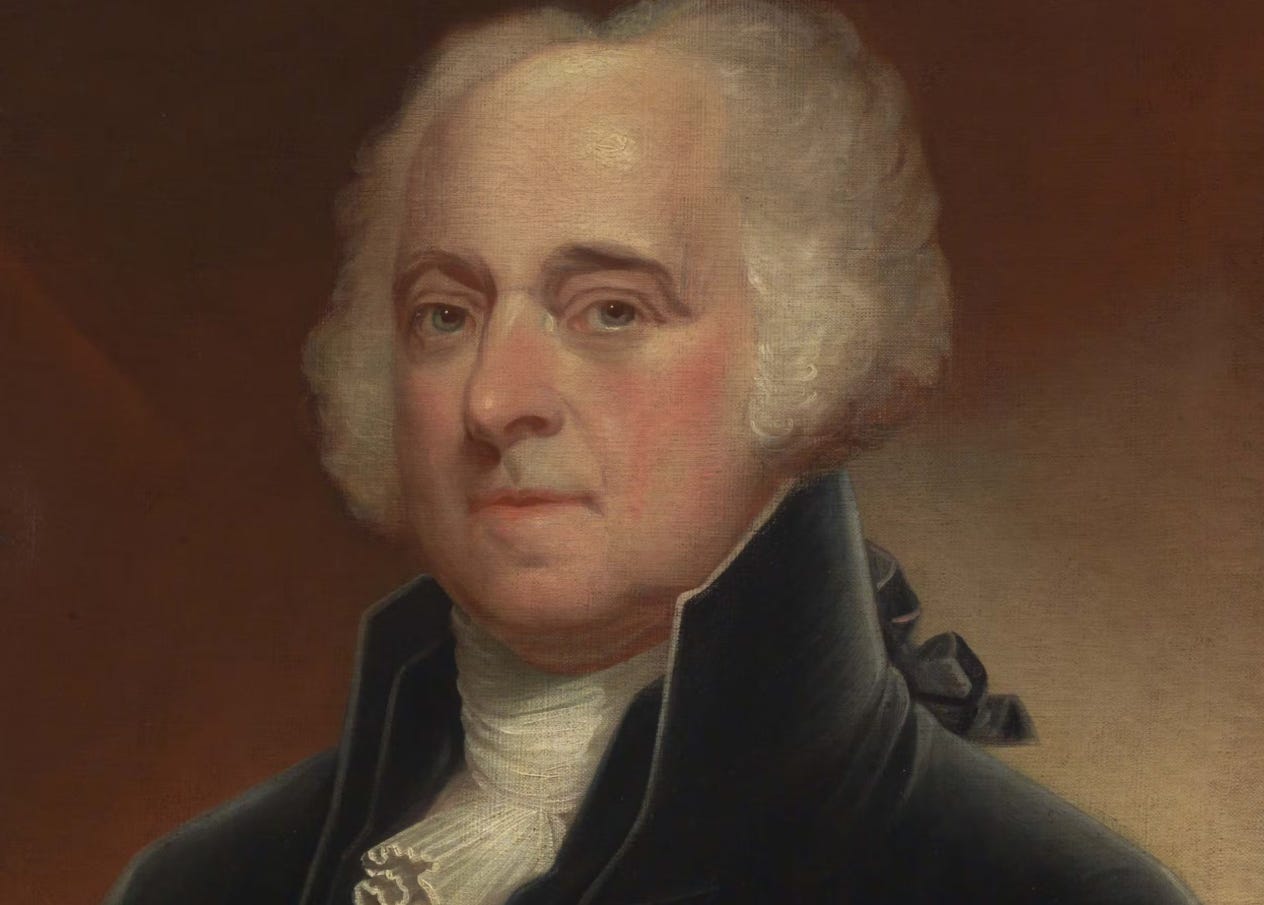Parsing an abstruse provision in the rule for the $10 billion rescissions bill
And a couple of other nerdy, interesting bits of news
Last week, John C. Paschold wrote a piece for UnderstandingCongress.org on the position-taking of legislators on the “Big Beautiful Bill Act” and attendant Musk-Trump spat. The congressional behavior was strategic, predictable, and amusing.
While I edited that piece, I got an email from a Hill insider asking me about a provision in the House rule for H.R. 4, the rescission bill that aims to trim around $10 billion in previously approved spending. House Rule 499 declares:
Sec. 2. The provisions of section 1017 of the Impoundment Control Act of 1974 shall not apply to a bill or joint resolution introduced with respect to the special message transmitted under section 1012 of that Act on June 3, 2025.
Well, now, that is as clear as mud.
What is the “special message” transmitted on June 3, you may ask? That was the President’s rescission request.
And what is Section 1017? This provision of the Congressional Budget and Impoundment Control Act of 1974 sets the procedure for the handling of recission bills in the House and Senate. Since the House rule only applies to the House, that means (duh) that this Section 2 language nullifies the budget act’s directives for how the House considers the recission: referral to committee, discharge, voting, etc.
Why did the House rule say Section 1017 did not apply?
So far as I can tell it seems to have been a way to bypass the mandated committee action.
H.R. 4 was referred to the House Appropriations Committee but Congress.gov lists no action by the committee to report it. The rescissions bill went to the committee on June 6, and five days later the House adopted H. Res. 499. Voila, upon “adoption of this resolution it shall be in order to consider in the House the bill (H.R. 4).” The House then debated and passed the rescission package the next day (June 12).
If anyone reading this newsletter has other assessments, please comment below!
UPDATE: Parliamentary maven Ringwiss suggests Sec. 2 of the rule aims to block anyone from offering a bill in relation to the rescission request/special message.
Have you heard of consensus choice voting?
Sports fans are familiar with round robin tournaments, which pair off each of the teams against other teams. Consensus choice voting aims to do the same. So, what does this method of voting aim to achieve?
Our current voting system actively encourages toxic political behavior. When candidates only need to win over their party’s base, they have no incentive to appeal to a broad range of voters. Instead, they benefit from attacking and alienating those outside their faction. This creates a vicious cycle where politics becomes more extreme, and voters feel more divided than ever.
Consensus Choice breaks this cycle by changing the rules so that candidates must aim to earn the support of majorities of voters in comparison to each of the other candidates, not just their base. It removes the structural incentives for division and replaces them with incentives for compromise and coalition-building. If we want leaders who work for all of us, we need a system that rewards bringing people together—not tearing them apart.
Some awfully smart people are supporting this systemic election reform idea. Have a look and think it over.
Giving John Adams his due
Back in 2019, Congress passed a law authorizing a John Adams Memorial Commission. Its duty was to “consider and formulate plans for a permanent memorial to honor John Adams and his legacy, including the nature, location, design, and construction of the memorial” in Washington, DC.
The memorial did not get built, so Rep. John Moolenaar (R-MI) has introduced legislation to extend the life of the Commission to 2032: “The Adams Memorial-Great American Heroes Act.” The legislation also authorizes up to $50,000,000 in matching federal spending for private funds raised.
The John Adams Memorial Foundation has been supporting the effort, and it recently reminded us of Adams’ greatness and service to the nascent nation in this op-ed. The House legislation is in the hands of the House Committee on Natural Resources. Will they move it? We’ll see.



